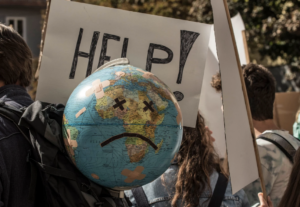Critics have raised concerns over the expedited ratification of “climate credits” regulations on the first day of Cop29, as the annual UN climate COP conference kicks off in Baku, the capital of Azerbaijan. The event is shrouded under a threatening cloud, symbolizing the looming risks and challenges posed by climate change. Once again, the world finds itself at a critical juncture, with the wealthiest nation led by a leader who actively opposes efforts to address one of the most pressing and existential threats facing our planet.
For over three decades, global initiatives to reduce emissions and combat climate change have fallen short of expectations, lacking the necessary efficiency and urgency. The return of Donald Trump to the White House comes at a pivotal moment for the green energy transition, which is still in its nascent stages rather than nearing completion. With 2024 poised to surpass 2023 as the warmest year on record, and greenhouse gas emissions reaching unprecedented levels, the need for immediate action is more critical than ever.
The United States, as the second-largest emitter of greenhouse gases after China, cannot afford to remain on the sidelines in the fight against climate change. However, the Trump administration’s return to power, bolstered by a recent election victory, raises concerns about the future trajectory of climate policy both domestically and internationally. The potential for a Republican-controlled Congress to roll back crucial environmental regulations and impede progress on green energy initiatives could have far-reaching implications for global efforts to combat climate change.
During Trump’s previous term in office from 2017 to 2021, China made significant strides in renewable energy development, surpassing the United States in key technologies such as solar modules and electric vehicles. The Inflation Reduction Act of 2022, a landmark climate legislation introduced by the Biden administration, aimed to channel significant funding towards green industries and promote clean energy initiatives. However, the threat of repeal under a new administration could jeopardize these investments and undermine the transition to a sustainable energy future.
While the economic case for renewable energy has strengthened in recent years, with global investments in renewables outpacing those in fossil fuels, the dominance of China in this sector raises concerns about America’s competitiveness on the world stage. Trump’s policies could further exacerbate this gap and hinder the country’s ability to lead in the transition to a low-carbon economy. By prioritizing fossil fuel production over clean energy alternatives, the administration risks stifling innovation and allowing other nations to gain a competitive edge in the clean technology sector.
As Baku becomes the focal point for discussions on climate action and international cooperation, the outcome of the US election will loom large over the negotiations. Trump’s threats to withdraw from the Paris Agreement and other key climate treaties could have far-reaching consequences for global climate efforts and hinder progress towards a more sustainable future. The prospect of the US exiting key international agreements could create a significant void in global climate leadership, requiring other major players like the EU and China to step up and fill the gap.
The challenges posed by climate change are too urgent and complex to be addressed by any single country alone. International collaboration and collective action are essential to tackle the root causes of global warming and ensure a sustainable future for all. As delegates gather in Baku to discuss the pressing climate issues facing our planet, it is imperative that world leaders prioritize climate action and work together towards common goals. The stakes are high, and the time for decisive and meaningful action is now.






